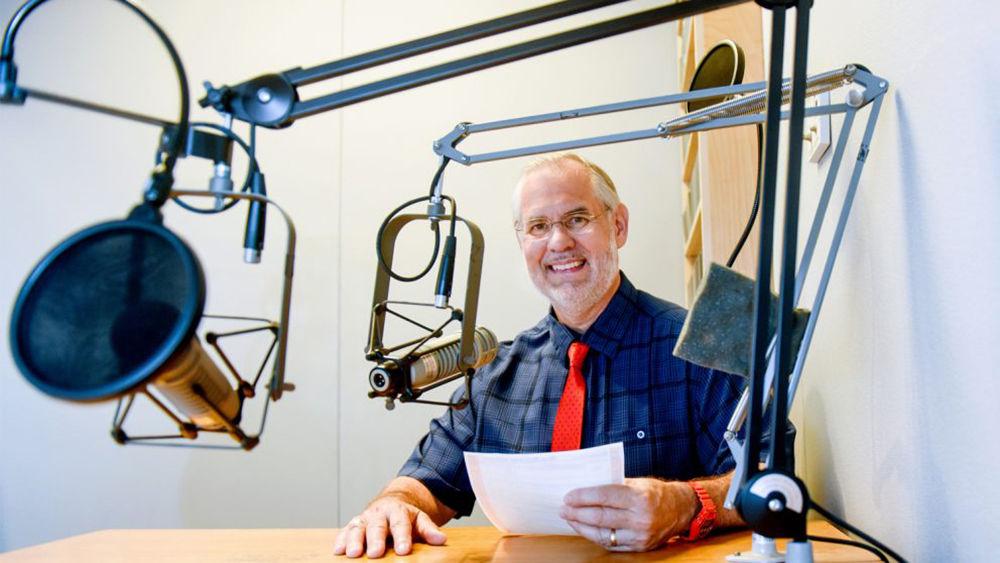Technician sat down with Michael Walden, a distinguished author and professor of agricultural and resource economics, to learn more about his latest book, “North Carolina Beyond the Connected Age,” and the impact of current economic trends on North Carolina in the year 2050.
What were some specific challenges you faced when it came to writing about the future?
Predicting the future has pluses and minuses. The plus is that no one can really disagree with you because the future’s not here yet. The minus is that if you’re serious about it, you want to be careful [and] do a wide range of reading, and there are differences in opinion. One example [is] that right now metro areas are booming; young people like yourself want to live in big cities [and] rural towns and counties have suffered from that. The safe bet is that it will continue.
In the book I have a map that shows Wake and Mecklenburg, our two biggest counties, doubling in population over the next several decades, where about a third of our counties, namely rural, will depopulate. [However], there are other futurists who say, and I state this in the book, [that] there could be some major technological changes that could allow people to live quite comfortably in rural areas and still have the advantages of being in the city.
One of the benefits of being in the city [is] seeing [the] people that you’re working with. Let’s say you’re working on a business deal; you could communicate with people over the phone or email, but there is something about seeing someone, looking them in the eye, reading their body language [and] seeing how they react. That’s one of the reasons why cities have continued to blossom even though we have the technology that allows people to communicate long distance.
If virtualization [for example] is perfected, there’s some people who say we won’t necessarily see cities continue to grow. At one point, it will become too expensive, and if these other technologies take off, we may see a rural renaissance.
That’s the challenge of writing something like this, and I try to indicate to the reader, based on my analysis, what I think will happen. I always try to give the reader a different perspective and say “maybe not.” If these [technologies] develop, we could see things move in a totally different direction.
Do you feel you accomplished a healthy balance of your research and your predictions?
I’m happy with the book. Fortunately there’s been nothing that’s happened in the last year that I could say totally changed the kinds of things that I was talking about. I chose the year 2050 [because] it’s the midpoint of the century; logically it’s far enough away that it is the future, but it’s not so far away that you can’t do things that will affect that. That’s the serious reason I chose 2050. The joking reason I tell people I chose 2050 is I’ll be 99 in that year; I’ll likely not be here. So if I’m wrong, I won’t care, and if I do happen to be here at age 99, I won’t care either.
I spoke to a group [recently] from the State Board of Transportation, [and it’s] very important for them to understand trends. I told them [not to] necessarily take what I say in the book as exactly what’s going to happen; no futurist can claim that. If I’m successful in alerting you to what to watch, then I will consider that I’ve been successful [overall].
Was there anything about your work or environment at NC State that contributed to developing your ideas?
NC State’s a land-grant university, [and] the thing about a land-grant university is that you not only have your teaching responsibilities, but also a responsibility to get around the state, talk to people and try to understand the issues that people in the state are facing. That feeds back into what you’re doing on campus. I knew nothing about that when I came here 40 years ago, and that has been a very rewarding part of my job because it constantly keeps me in touch with people.
I think, quite frankly, if you are at a university you can become isolated. You can only talk to your colleagues and you all sort of think the same way and read the same things, and you somehow get detached from reality. Part of my job description is to interact with the public through various ways; I’ve been to all 100 counties in the state [and that] gets me talking to various kinds of groups who all bring their own experiences. I’d say that’s been a big plus in my career that’s fed into not only my research and my teaching but obviously my writing.
Are there any examples or important takeaways from the book that would directly impact students?
The chapter on jobs; I think that’s one of the big questions. I know your generation is aware of this, to some degree, that the job market is changing very rapidly, mainly due to technology.
There was a report put out by MIT last week [that] predicted that half of today’s occupations won’t exist in mid-century. That puts a lot of pressure, I think, on young people who are in college to try to figure out “what should I train for? What should I do? If I can’t expect the job that I’m training for to be there, how’s that going to affect me?”
I think by pointing that out, universities need to be aware of this and need the future to be flexible to try to move resources around and perhaps [have] some programs shrink and others [grow]. That’s probably one of the more important chapters in the book because, obviously, the job market affects everyone.








